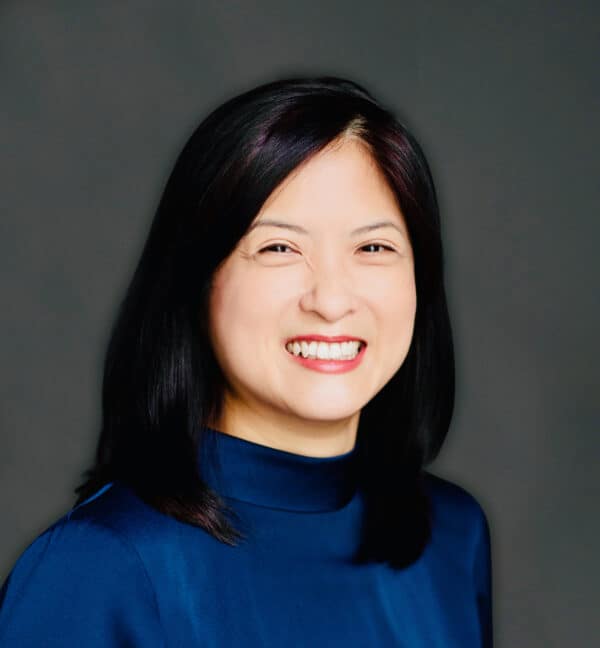ADDX, a Singapore-based firm, is making private market investing available to many wealthy investors who were previously excluded from the opportunity. There is strong demand for the service, Oi-Yee Choo ADDX chief commercial officer said.
Choo brings two decades of capital raising and mergers and acquisitions advisory experience to ADDX. She was with UBS for six years, serving as head of investment banking for UBS Singapore. She was also head of Singapore investment banking for Morgan Stanley, and ran the Southeast Asia real estate investment banking franchise for Nomura Singapore.
While with UBS, Choo said she saw a shift in interest from distributing IPOs to institutions to the wealth aspect. Yet at the same time, UBS was building a private market platform with equity funds, unicorns, and pre-IPO companies resulting in much more structured credit deals being completed through their wealth distribution channels.
“Every year I saw an increasing proportion of my business from the traditional m&a and the public markets business towards private banks,” Choo said. “The second thing that was interesting was the way that these banks thought about risk, suitability, illiquidity – how do you distribute that? How do you tier from retail to mass affluent to high net worth to family offices?”
While she worked in the field, Choo herself could not invest in debt, and that was because banks were designing and instituting barriers to many. She met the ADDX founders and decided to work with them on making those private market opportunities available to a wider range of investors.
Private markets are designed for institutional capital, so it has taken some work to structure a suitable system for ADDX’s investors. They don’t have, for example, electronic trading brokers and pricing systems because of their structure. With a cap table limited to maybe 20 investors they didn’t have to worry about such matters.
But a shift began to occur and technology was developed that could bring these pieces together, Choo said, to the point where there was no reason why more retail investors could not have a private market portfolio. The technology and products needed someone to bring them together and that is what ADDX does.
It has been great timing for ADDX, which was one of the first companies to emerge from the Monetary Authority of Singapore’s sandbox for companies leveraging new technologies. In early 2020 they started small with a couple of funds that performed well.
Big fund managers are also always seeking the next big pool of capital, and in the developed parts of Asia, there is a rapidly growing pool of increasingly affluent people with capital to deploy.
“Fast forward to today and we’ve done now close to 30 transactions across hybrid equity, credit, mostly funds and in the funds phase,” Choo said. “We’ve done private real estate funds. We’ve done hedge funds, PE funds, VC funds, so the whole suite, we figured out the tech and the operational process to manage all of these.”
“We do have very good partners in Japan, in China, and in Thailand, too. We think the regional market is going to keep us very busy, at least for 2022.”
While wealth managers recommend deploying 20 per cent of a portfolio in private markets, before ADDX developed the capability it was easier said than done, Choo said. In Asia, the typical percentage deployed in that area may be five per cent for a few but is closer to zero for most. That’s because there’s very little product structured for the mass affluent.
But the regional demand is evident, Choo said. Countries like Japan need to meet significant pension liabilities. While China’s situation is complex in getting onshore capital investment outside, there is capital available. Thailand also has a large investor base. ADDX is taking to various funds while also educating investors about private markets.
“So the market is large, just because it’s hugely unpenetrated for the for the mass affluent,” Choo said
Blockchain’s power helps make all of this possible, Choo explained. In a typical bank, five or six different systems speak with each other, and with each one a crew monitors and reconciles transactions. Errors inevitably occur. With blockchain, transactions are accurately captured, an audit trail is produced and the ledger is always accurate, Choo said.
It also helps with disbursement instructions and scaling.
“Usually these distributors have maybe five clients who are rich, and then they go to these five clients and say ‘I’ll get take care of the fund for you’,” Choo said. “How do you scale that to 1,000? How do you scale that to 3,000 users or 5,000 users? How do you work with private banks? The only way you can do that is to give a system that’s robust. So, blockchain is one of what I think are the leading solutions today for that purpose, keeping records.”
 Give credit to Singapore’s government for quickly recognizing the potential of digital finance, Choo said. They were smart by quickly defining that a tokenized security is the equivalent of a normal security.
Give credit to Singapore’s government for quickly recognizing the potential of digital finance, Choo said. They were smart by quickly defining that a tokenized security is the equivalent of a normal security.
The government also established the sandbox ADDX graduated from. That expedited licensing and provided regulators with a front-row view of ADDX’s development. In the case of ADDX’s first bond they saw, and were comfortable with, every step.
“That regime has been very powerful because it allows new business models and new technology to expedite what would have been a very extended process of license,” Choo said.
When looking for opportunities, ADDX takes the normal steps of vetting executives and checking histories, They also run each opportunity past a board of senior investment executives. They partner with experienced bond market participants. For equities, they work directly with small companies and also have identified some Chinese unicorns in the pre-IPO stage to partner with.
This year, look for short-term credit to be an industry focus, Choo said, as investors will seek to manage liabilities and financing costs. Impact and ESG investing will continue to be significant, along with technology.
“I think for people who come onto our digital platform, generally they don’t focus on traditional industries anymore,” Choo said. “Because I think they want to express themselves (as) new humans. I think we’re only just starting to see the interest in Asia for impact and ESG last year, I think this year is when people start putting real dollars to work there.”
Supply chain disruptions will also influence investors, especially in logistics and real estate, Choo said. There is strong interest in last mile services, food distribution and e-commerce.
Choo credited several ADDX partners and early investors for their contributions to their success so far. They include the Singapore Exchange, Heliconia Capital, and financial institutions from across the region.
“The second shareholders are Heliconia, which is part of Temasek, so we benefit from the whole Temasek ecosystem,” Choo said. “So we will get the top Temasek fund managers and companies on our platform.
“Financial institutions are watching the private market space and the blockchain space with a lot of interest because they’re trying to understand what’s going to disrupt them. We continue to see financial institutions interest extremely, extremely high. And I think that is because private markets at the moment have pretty much zero infrastructure.”
Choo believes global capital is shifting towards private, so every financial institution with a wealth management arm or every exchange that is struggling with the public side of the business will start to get the private sector business. At a high level she believes it’s not just about the blockchain and technology, it really is structural shifts in the world, around private companies.
“Private companies are now staying private longer, because there’s just more people wanting to move towards making bigger returns, or picking companies that they really feel an association with,” Choo concluded. “So I think this trend is going to continue to grow.”


